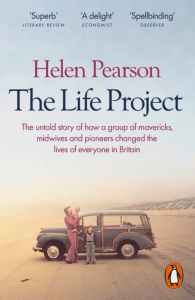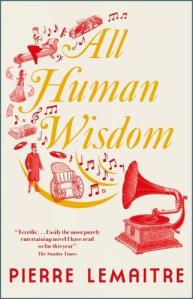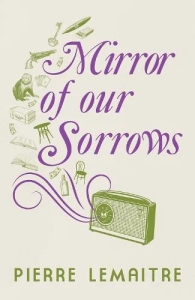January 11, 2024 · 8:51 pm
I often seek out the books which receive rare positive reviews in Private Eye magazine and Wasteland by Oliver Franklin-Wallis is a truly eye-opening look at where our waste actually ends up. Franklin-Wallis probes a lot of uncomfortable truths about recycling and greenwashing on his travels around the world starting at a recycling centre in Essex and followed by a mega-landfill site in India, a textile market in Ghana, a processing plant in California where defunct tech is recycled, and sewers in London. The legacy of wealthy countries exporting their waste to poorer countries as well as overproduction and corporate greed have created staggering problems with waste disposal. The most disheartening thing is how so many supposed solutions end up failing to make any real difference or cause more issues further down the line. With textiles, for example, cotton tote bags need to be used 7,000 times to match the environmental cost of a single-use plastic bag, clothes made from recycled fibres are themselves much more difficult to recycle and 25% of clothing is never sold because it is thrown away by companies rather than reused elsewhere. If the first two-thirds of the book haven’t made you feel depressed enough, wait until you read about the environmental impact of the 97% of global waste generated by industry including mining and nuclear waste which dwarfs the 3% generated by households. Franklin-Wallis does offer some messages of hope about how to reduce consumption, although I still finished the book feeling very overwhelmed by the scale of the problem. Essential reading, and a last-minute entry for one of my books of the year.

 After a longer than expected gap of eight years, I reread The Great Swindle by Pierre Lemaitre before turning to the second and third books in the French author’s Paris Between the Wars trilogy which are All Human Wisdom and Mirror of Our Sorrows respectively and translated by Frank Wynne. It was helpful to revisit the first book which details Albert Maillard and Édouard Péricourt’s plan to sell war memorials they have no intention of building and Henri Aulnay-Pradelle’s scheme to rebury French soldiers in cheaper undersized coffins. Henri marries Édouard’s sister, Madeleine, who is the main protagonist of the second book in which she is a victim of the financial crash in 1928 and seeks revenge on those who have caused her misfortune.
After a longer than expected gap of eight years, I reread The Great Swindle by Pierre Lemaitre before turning to the second and third books in the French author’s Paris Between the Wars trilogy which are All Human Wisdom and Mirror of Our Sorrows respectively and translated by Frank Wynne. It was helpful to revisit the first book which details Albert Maillard and Édouard Péricourt’s plan to sell war memorials they have no intention of building and Henri Aulnay-Pradelle’s scheme to rebury French soldiers in cheaper undersized coffins. Henri marries Édouard’s sister, Madeleine, who is the main protagonist of the second book in which she is a victim of the financial crash in 1928 and seeks revenge on those who have caused her misfortune.  ‘Mirror of Our Sorrows’ reintroduces Louise, who briefly met Édouard as a child in ‘The Great Swindle’. By 1940, she is a waitress and searching for her half-brother just as the threat of German occupation looms over France. Lemaitre gives equal weight to historical detail, vivid characterisation and twisting plots in this sequence of novels. Each volume has a memorable opening set piece and Lemaitre is particularly good at portraying villains. As the links between the main characters are fairly loose, the three books could easily be read as stand-alone novels, but as a trilogy they form a captivating portrait of France at a critical point in history.
‘Mirror of Our Sorrows’ reintroduces Louise, who briefly met Édouard as a child in ‘The Great Swindle’. By 1940, she is a waitress and searching for her half-brother just as the threat of German occupation looms over France. Lemaitre gives equal weight to historical detail, vivid characterisation and twisting plots in this sequence of novels. Each volume has a memorable opening set piece and Lemaitre is particularly good at portraying villains. As the links between the main characters are fairly loose, the three books could easily be read as stand-alone novels, but as a trilogy they form a captivating portrait of France at a critical point in history.
Filed under Books






